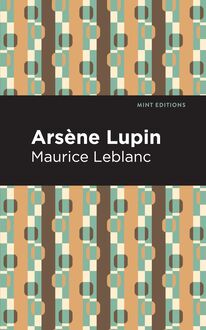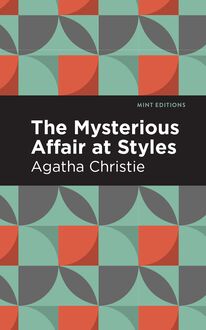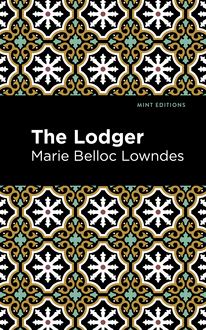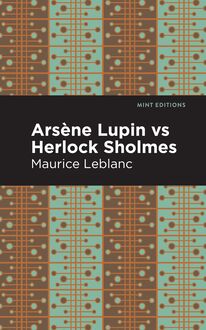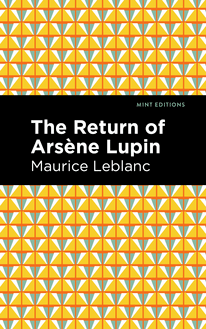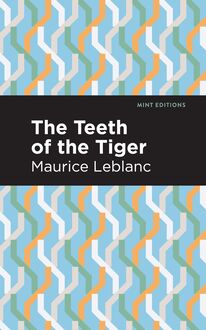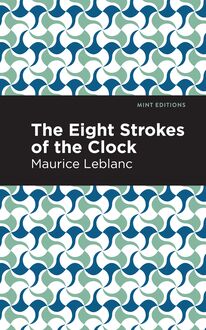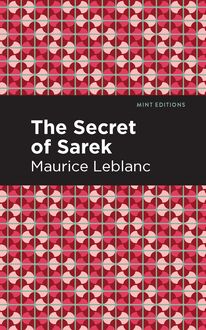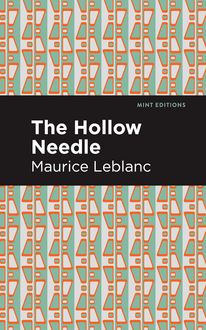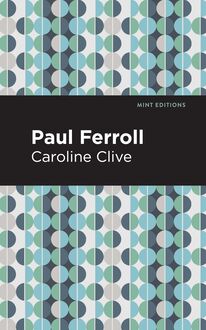-
 Univers
Univers
-
 Ebooks
Ebooks
-
 Livres audio
Livres audio
-
 Presse
Presse
-
 Podcasts
Podcasts
-
 BD
BD
-
 Documents
Documents
-
- Cours
- Révisions
- Ressources pédagogiques
- Sciences de l’éducation
- Manuels scolaires
- Langues
- Travaux de classe
- Annales de BEP
- Etudes supérieures
- Maternelle et primaire
- Fiches de lecture
- Orientation scolaire
- Méthodologie
- Corrigés de devoir
- Annales d’examens et concours
- Annales du bac
- Annales du brevet
- Rapports de stage
La lecture à portée de main
Vous pourrez modifier la taille du texte de cet ouvrage
Découvre YouScribe en t'inscrivant gratuitement
Je m'inscrisDécouvre YouScribe en t'inscrivant gratuitement
Je m'inscrisEn savoir plus
Vous pourrez modifier la taille du texte de cet ouvrage
En savoir plus

Description
The Secret Passage (1905) is a mystery novel by Fergus Hume. Although not as successful as The Mystery of a Hansom Cab (1886), an immediate bestseller for Hume, The Secret Passage is a gripping novel with an atmospheric intensity and tightly wound mystery worthy of the best of Victorian fiction. From an author whose work inspired Arthur Conan Doyle, The Secret Passage is a story of murder with a haunting, original conclusion.
Susan Grant, a young woman seeking employment, arrives at Rose Cottage, the home of Miss Loach. After a brief but intense interview, Susan begins working as a parlor maid, quickly discovering the high standard to which Miss Loach holds her employees. Across town, her sister Mrs. Octagon, a writer with a penchant for self-promotion, lives with her husband, Peter, and daughter, Juliet. Speaking with Juliet following afternoon tea one day, Mrs. Octagon raises the topic of her sister, whose quiet life she deeply disapproves of. At this moment, as though by a stroke of fate, her husband bursts in with the news of Miss Loach’s murder. As Jennings, a local detective, begins his investigation, he discovers a broad cast of friends, employees, and acquaintances, all of whom harbor some motive—but who could have been driven to murder? Was it Susan, whose history working for a mysterious Spaniard seems questionable at best? Was it Mrs. Octagon, from whom the topic of her sister had always drawn the bitterest of words? As The Secret Passage winds toward its cunning conclusion, one thing becomes clear—the line between malice and murder remains murky, even under the brightest of lights.
With a beautifully designed cover and professionally typeset manuscript, this edition of Fergus Hume’s The Secret Passage is a classic of English mystery and detective fiction reimagined for modern readers.
Sujets
Informations
| Publié par | Mint Editions |
| Date de parution | 09 mars 2021 |
| Nombre de lectures | 0 |
| EAN13 | 9781513278841 |
| Langue | English |
Informations légales : prix de location à la page 0,0500€. Cette information est donnée uniquement à titre indicatif conformément à la législation en vigueur.
Extrait
The Secret Passage
Fergus Hume
The Secret Passage was first published in 1905.
This edition published by Mint Editions 2021.
ISBN 9781513278384 | E-ISBN 9781513278841
Published by Mint Editions ®
minteditionbooks.com
Publishing Director: Jennifer Newens
Design & Production: Rachel Lopez Metzger
Project Manager: Micaela Clark
Typesetting: Westchester Publishing Services
C ONTENTS I. T HE C OTTAGE II. T HE C RIME III. A M YSTERIOUS D EATH IV. D ETAILS V. L ORD C ARANBY ’ S R OMANCE VI. A P ERPLEXING C ASE VII. T HE D ETECTIVE VIII. T HE C OURSE OF T RUE L OVE IX. A NOTHER M YSTERY X. T HE P ARLOR -M AID ’ S S TORY XI. O N THE T RACK XII. J ENNINGS A SKS Q UESTIONS XIII. J ULIET AT B AY XIV. M RS . O CTAGON E XPLAINS XV. A D ANGEROUS A DMISSION XVI. J ULIET ’ S S TORY XVII. J ULIET ’ S S TORY C ONTINUED XVIII. T HE U NEXPECTED H APPENS XIX. S USAN ’ S D ISCOVERY XX. B ASIL XXI. A N E XPERIMENT XXII. T HE S ECRET E NTRANCE XXIII. A S CAMP ’ S H ISTORY XXIV. R EVENGE XXV. N EMESIS XXVI. C UTHBERT ’ S E NEMY
I
T HE C OTTAGE
“What I S your name?”
“Susan Grant, Miss Loach.”
“Call me ma’am. I am Miss Loach only to my equals. Your age?”
“Twenty-five, ma’am.”
“Do you know your work as parlor-maid thoroughly?”
“Yes, ma’am. I was two years in one place and six months in another, ma’am. Here are my characters from both places, ma’am.”
As the girl spoke she laid two papers before the sharp old lady who questioned her. But Miss Loach did not look at them immediately. She examined the applicant with such close attention that a faint color tinted the girl’s cheeks and she dropped her eyes. But, in her turn, by stealthy glances, Susan Grant tactfully managed to acquaint herself with the looks of her possible mistress. The thoughts of each woman ran as follows,—
Miss Loach to herself. “Humph! Plain-looking, sallow skin, rather fine eyes and a slack mouth. Not badly dressed for a servant, and displays some taste. She might turn my old dresses at a pinch. Sad expression, as though she had something on her mind. Honest-looking, but I think a trifle inquisitive, seeing how she examined the room and is stealing glances at me. Talks sufficiently, but in a low voice. Fairly intelligent, but not too much so. Might be secretive. Humph!”
The thoughts of Susan Grant. “Handsome old lady, probably nearly sixty. Funny dress for ten o’clock in the morning. She must be rich, to wear purple silk and old lace and lovely rings at this hour. A hard mouth, thin nose, very white hair and very black eyebrows. Got a temper I should say, and is likely to prove an exacting mistress. But I want a quiet home, and the salary is good. I’ll try it, if she’ll take me.”
Had either mistress or maid known of each other’s thoughts, a conclusion to do business might not have been arrived at. As it was, Miss Loach, after a few more questions, appeared satisfied. All the time she kept a pair of very black eyes piercingly fixed on the girl’s face, as though she would read her very soul. But Susan had nothing to conceal, so far as Miss Loach could gather, so in the end she resolved to engage her.
“I think you’ll do,” she said nodding, and poking up the fire, with a shiver, although the month was June. “The situation is a quiet one. I hope you have no followers.”
“No, ma’am,” said Susan and flushed crimson.
“Ha!” thought Miss Loach, “she has been in love—jilted probably. All the better, as she won’t bring any young men about my quiet house.”
“Will you not read my characters, ma’am?”
Miss Loach pushed the two papers towards the applicant. “I judge for myself,” said she calmly. “Most characters I read are full of lies. Your looks are enough for me. Where were you last?”
“With a Spanish lady, ma’am!”
“A Spanish lady!” Miss Loach dropped the poker she was holding, with a clatter, and frowned so deeply that her black eyebrows met over her high nose. “And her name?”
“Senora Gredos, ma’am!”
The eyes of the old maid glittered, and she made a clutch at her breast as though the reply had taken away her breath. “Why did you leave?” she asked, regaining her composure.
Susan looked uncomfortable. “I thought the house was too gay, ma’am.”
“What do you mean by that? Can any house be too gay for a girl of your years?”
“I have been well brought up, ma’am,” said Susan quietly; “and my religious principles are dear to me. Although she is an invalid, ma’am, Senora Gredos was very gay. Many people came to her house and played cards, even on Sunday,” added Susan under her breath. But low as she spoke, Miss Loach heard.
“I have whist parties here frequently,” she said drily; “nearly every evening four friends of mine call to play. Have you any objection to enter my service on that account?”
“Oh, no, ma’am. I don’t mind a game of cards. I play ‘Patience’ myself when alone. I mean gambling—there was a lot of money lost and won at Senora Gredos’ house!”
“Yet she is an invalid I think you said?”
“Yes, ma’am. She was a dancer, I believe, and fell in some way, so as to break her leg or hurt her back. She has been lying on a couch for two years unable to move. Yet she has herself wheeled into the drawing-room and watches the gentlemen play cards. She plays herself sometimes!”
Miss Loach again directed one of her piercing looks at the pale face of the girl. “You are too inquisitive and too talkative,” she said suddenly, “therefore you won’t suit me. Good-day.”
Susan was quite taken aback. “Oh, ma’am, I hope I’ve said nothing wrong. I only answered your questions.”
“You evidently take note of everything you see, and talk about it.”
“No, ma’am,” said the girl earnestly. “I really hold my tongue.”
“When it suits you,” retorted Miss Loach. “Hold it now and let me think!”
While Miss Loach, staring frowningly into the fire, debated inwardly as to the advisability of engaging the girl, Susan looked timidly round the room. Curiously enough, it was placed in the basement of the cottage, and was therefore below the level of the garden. Two fairly large windows looked on to the area, which had been roofed with glass and turned into a conservatory. Here appeared scarlet geraniums and other bright-hued flowers, interspersed with ferns and delicate grasses. Owing to the position of the room and the presence of the glass roof, only a subdued light filtered into the place, but, as the day was brilliant with sunshine, the apartment was fairly well illuminated. Still, on a cloudy day, Susan could imagine how dull it would be. In winter time the room must be perfectly dark.
It was luxuriously furnished, in red and gold. The carpet and curtains were of bright scarlet, threaded with gold. The furniture, strangely enough, was of white polished wood upholstered in crimson satin fringed with gold. There were many pictures in large gilded frames and many mirrors similarly encircled with gilded wood. The grate, fender and fire-irons were of polished brass, and round the walls were numerous electric lamps with yellow shades. The whole room represented a bizarre appearance, flamboyant and rather tropical in looks. Apparently Miss Loach was fond of vivid colors. There was no piano, nor were there books or papers, and the only evidence as to how Miss Loach passed her time revealed itself in a work-basket and a pack of cards. Yet, at her age, Susan thought that needlework would be rather trying, even though she wore no glasses and her eyes seemed bright and keen. She was an odd old lady and appeared to be rich. “I’ll engage you,” said Miss Loach abruptly; “get your box and be here before five o’clock this afternoon. I am expecting some friends at eight o’clock. You must be ready to admit them. Now go!”
“But, ma’am, I—”
“In this house,” interrupted Miss Loach imperiously, “no one speaks to me, unless spoken to by me. You understand!”
“Yes, ma’am,” replied Susan timidly, and obeyed the finger which pointed to the door. Miss Loach listened to the girl’s footsteps on the stairs, and sat down when she heard the front door close. But she was up again almost in a moment and pacing the room. Apparently the conversation with Susan Grant afforded her food for reflection. And not very palatable food either, judging from her expression.
The newly-engaged servant returned that same afternoon to the suburban station, which tapped the district of Rexton. A trunk, a bandbox and a bag formed her humble belongings, and she arranged with a porter that these should be wheeled in a barrow to Rose Cottage, as Miss Loach’s abode was primly called. Having come to terms, Susan left the station and set out to walk to the place. Apart from the fact that she saved a cab fare, she wished to obtain some idea of her surroundings, and therefore did not hurry herself.
It was a bright June day with a warm green earth basking under a blue and cloudless sky. But even the sunshine could not render Rexton beautiful. It stretched out on all sides from the station new and raw. The roads were finished, with asphalt footpaths and stone curbing, the lamp-posts had apparently only been lately erected, and lines of white fences divided the roads from gardens yet in their infancy. Fronting these were damp-looking red brick villas, belonging to small clerks and petty tradesmen. Down one street was a row of shops filled with the necessaries of civilization; and round the corner, an aggressively new church of yellow brick with a tin roof and a wooden steeple stood in the middle of an untilled space. At the end of one street a glimpse could be caught of the waste country beyond, not yet claimed by the ferry-builder. A railway embankment bulked against the horizon, and closed the view in an unsightly manner. Rexton was as ugly as it was new.
Losing her way, Susan came to the ragged fringe of country environing the new suburb, and paused there, to take in her surroundings. Across the fields to the left she saw an unfinished mansion, large and stately, rising amidst a forest of p
-
 Univers
Univers
-
 Ebooks
Ebooks
-
 Livres audio
Livres audio
-
 Presse
Presse
-
 Podcasts
Podcasts
-
 BD
BD
-
 Documents
Documents
-
Jeunesse
-
Littérature
-
Ressources professionnelles
-
Santé et bien-être
-
Savoirs
-
Education
-
Loisirs et hobbies
-
Art, musique et cinéma
-
Actualité et débat de société
-
Jeunesse
-
Littérature
-
Ressources professionnelles
-
Santé et bien-être
-
Savoirs
-
Education
-
Loisirs et hobbies
-
Art, musique et cinéma
-
Actualité et débat de société
-
Actualités
-
Lifestyle
-
Presse jeunesse
-
Presse professionnelle
-
Pratique
-
Presse sportive
-
Presse internationale
-
Culture & Médias
-
Action et Aventures
-
Science-fiction et Fantasy
-
Société
-
Jeunesse
-
Littérature
-
Ressources professionnelles
-
Santé et bien-être
-
Savoirs
-
Education
-
Loisirs et hobbies
-
Art, musique et cinéma
-
Actualité et débat de société
- Cours
- Révisions
- Ressources pédagogiques
- Sciences de l’éducation
- Manuels scolaires
- Langues
- Travaux de classe
- Annales de BEP
- Etudes supérieures
- Maternelle et primaire
- Fiches de lecture
- Orientation scolaire
- Méthodologie
- Corrigés de devoir
- Annales d’examens et concours
- Annales du bac
- Annales du brevet
- Rapports de stage
